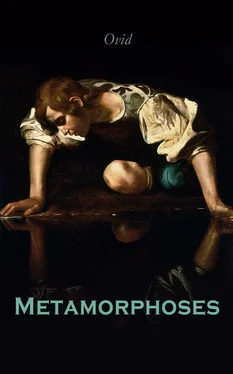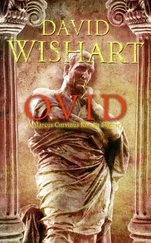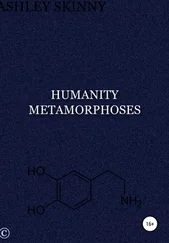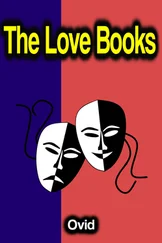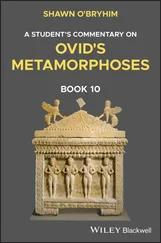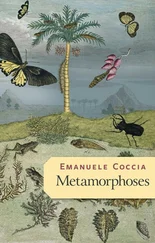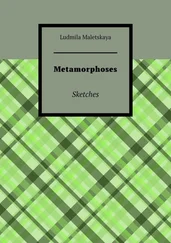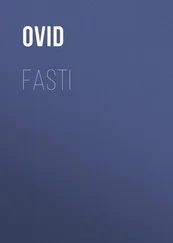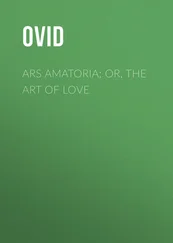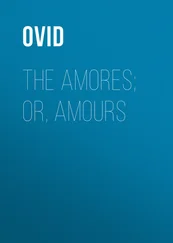Ovid - Metamorphoses
Здесь есть возможность читать онлайн «Ovid - Metamorphoses» — ознакомительный отрывок электронной книги совершенно бесплатно, а после прочтения отрывка купить полную версию. В некоторых случаях можно слушать аудио, скачать через торрент в формате fb2 и присутствует краткое содержание. Жанр: unrecognised, на английском языке. Описание произведения, (предисловие) а так же отзывы посетителей доступны на портале библиотеки ЛибКат.
- Название:Metamorphoses
- Автор:
- Жанр:
- Год:неизвестен
- ISBN:нет данных
- Рейтинг книги:3 / 5. Голосов: 1
-
Избранное:Добавить в избранное
- Отзывы:
-
Ваша оценка:
- 60
- 1
- 2
- 3
- 4
- 5
Metamorphoses: краткое содержание, описание и аннотация
Предлагаем к чтению аннотацию, описание, краткое содержание или предисловие (зависит от того, что написал сам автор книги «Metamorphoses»). Если вы не нашли необходимую информацию о книге — напишите в комментариях, мы постараемся отыскать её.
Metamorphoses — читать онлайн ознакомительный отрывок
Ниже представлен текст книги, разбитый по страницам. Система сохранения места последней прочитанной страницы, позволяет с удобством читать онлайн бесплатно книгу «Metamorphoses», без необходимости каждый раз заново искать на чём Вы остановились. Поставьте закладку, и сможете в любой момент перейти на страницу, на которой закончили чтение.
Интервал:
Закладка:
85 Adjusts his mantle. ]—Ver. 733. ‘Chlamydemque ut pendeat apte, Collocat,’ etc., is translated by Clarke—‘And he places his coat that it might hang agreeably, that the border and all its gold might appear.’
86 That his wings. ]—Ver. 736. Clarke renders ‘ut tersis niteant talaria plantis,’ ‘that his wings shine upon his spruce feet.’
87 God who inhabits Lemnos. ]—Ver. 757. Being precipitated from heaven for his deformity, Vulcan fell upon the Isle of Lemnos, in the Ægean Sea, where he exercised the craft of a blacksmith, according to the mythologists. The birth of Ericthonius, by the aid of Minerva, is here referred to.
88 Tritonia. ]—Ver. 783. Minerva is said to have been called Tritonia, either from the Cretan word τριτω, signifying ‘a head,’ as she sprang from the head of Jupiter; or from Trito, a lake of Libya, near which she was said to have been born.
89 Tritonian. ]—Ver. 794. Athens, namely, which was sacred to Pallas, or Minerva, its tutelary divinity.
90 Sidonis. ]—Ver. 840. Sidon, or Sidonis, was a maritime city of Phœnicia, near Tyre, of whose greatness it was not an unworthy rival.
BOOK THE THIRD.
Table of Contents
FABLE I.
Jupiter, having carried away Europa, her father, Agenor, commands his son Cadmus to go immediately in search of her, and either to bring back his sister with him, or never to return to Phœnicia. Cadmus, wearied with his toils and fruitless inquiries, goes to consult the oracle at Delphi, which bids him observe the spot where he should see a cow lie down, and build a city there, and give the name of Bœotia to the country.
And now the God, having laid aside the shape of the deceiving Bull, had discovered himself, and reached the Dictæan land; when her father, ignorant of her fate , commands Cadmus to seek her thus ravished, and adds exile as the punishment, if he does not find her; being both affectionate and unnatural in the self-same act. The son of Agenor, having wandered over the whole world, 1as an exile flies from his country and the wrath of his father, for who is there that can discover the intrigues of Jupiter? A suppliant, he consults the oracle of Phœbus, and inquires in what land he must dwell. “A heifer,” Phœbus says, “will meet thee in the lonely fields, one that has never borne the yoke, and free from the crooked plough. Under her guidance, go on thy way; and where she shall lie down on the grass, there cause a city to be built, and call it the Bœotian 2 city .”
Scarcely had Cadmus well got down from the Castalian cave, 3 when he saw a heifer, without a keeper, slowly going along, bearing no mark of servitude upon her neck. He follows, and pursues her steps with leisurely pace, and silently adores Phœbus, the adviser of his way. And now he had passed the fords of the Cephisus, and the fields of Panope, when the cow stood still and raising her forehead, expansive with lofty horns, towards heaven, she made the air reverberate with her lowings. And so, looking back on her companions that followed behind, she lay down, and reposed her side upon the tender grass. Cadmus returned thanks, and imprinted kisses upon the stranger land, and saluted the unknown mountains and fields. He was now going to offer sacrifice to Jupiter, and commanded his servants to go and fetch some water for the libation from the running springs. An ancient grove was standing there, as yet profaned by no axe. There was a cavern in the middle of it , thick covered with twigs and osiers, forming a low arch by the junction of the rocks; abounding with plenty of water. Hid in this cavern, there was a dragon sacred to Mars, 4adorned with crests and a golden color . His eyes sparkle with fire, and all his body is puffed out with poison; three tongues, too , are brandished, and his teeth stand in a triple row.
EXPLANATION.
Reverting to the history of Europa, it may be here remarked, that Apollodorus has preserved her genealogy. Libya, according to that author, had two sons by Neptune, Belus and Agenor. The latter married Telephassa, by whom he had Cadmus, Phœnix, and Cilix, and a daughter named Europa. Some ancient writers, however, say, that Europa was the daughter of Phœnix, and the grandchild of Agenor.
Some authors, and Ovid among the rest, have supposed that Europe received its name from Europa. Bochart has, with considerable probability, suggested that it was originally so called from the fair complexion of the people who inhabited it. Europa herself may have received her name also from the fairness of her complexion: hence, the poets, as the Scholiast on Theocritus tells us, invented a fable, that a daughter of Juno stole her mother’s paint, to give it to Europa, who used it with so much success as to ensure, by its use, an extremely fair and beautiful complexion.
FABLE II.
The companions of Cadmus, fetching water from the fountain of Mars, are devoured by the Dragon that guards it. Cadmus, on discovering their destruction, slays the monster, and, by the advice of Minerva, sows the teeth, which immediately produce a crop of armed men. They forthwith quarrel among themselves, and kill each other, with the exception of five who assist Cadmus in building the city of Thebes.
After the men who came from the Tyrian nation had touched this grove with ill-fated steps, and the urn let down into the water made a splash; the azure dragon stretched forth his head from the deep cave, and uttered dreadful hissings. The urns dropped from their hands; and the blood left their bodies, and a sudden trembling seized their astonished limbs. He wreathes his scaly orbs in rolling spires, and with a spring becomes twisted into mighty folds; and uprearing himself from below the middle into the light air, he looks down upon all the grove, and is of as large a size, 5as, if you were to look on him entire, the serpent which separates the two Bears.
There is no delay; he seizes the Phœnicians (whether they are resorting to their arms or to flight, or whether fear itself is preventing either step ); some he kills with his sting, 6some with his long folds, some breathed upon 7by the venom of his baneful poison.
The sun, now at its height, had made the shadows but small: the son of Agenor wonders what has detained his companion and goes to seek his men. His garment was a skin torn from a lion; his weapon was a lance with shining steel, and a javelin; and a courage superior to any weapon. When he entered the grove, and beheld the lifeless bodies, and the victorious enemy of immense size upon them, licking the horrid wounds with bloodstained tongue, he said, “Either I will be the avenger of your death, bodies of my faithful companions , or I will be a sharer in it .” Thus he said; and with his right hand he raised a huge stone, 8and hurled the vast weight with a tremendous effort. And although high walls with lofty towers would have been shaken with the shock of it, yet the dragon remained without a wound; and, being defended by his scales as though with a coat of mail, and the hardness of his black hide, he repelled the mighty stroke with his skin. But he did not overcome the javelin as well with the same hardness; which stood fast, fixed in the middle joint of his yielding spine, and sank with the entire point of steel into his entrails. Fierce with pain, he turned his head towards his back, and beheld his wounds, and bit the javelin fixed there. And after he had twisted it on every side with all his might, with difficulty he wrenched it from his back; yet the steel stuck fast in his bones. But then, when this newly inflicted wound has increased his wonted fury, his throat swelled with gorged veins, and white foam flowed around his pestilential jaws. The Earth, too, scraped with the scales, sounds again, and the livid steam that issues from his infernal mouth, 9infects the tainted air. One while he is enrolled in spires making enormous rings; sometimes he unfolds himself straighter than a long beam. Now with a vast impulse, like a torrent swelled with rain, he is borne along, and bears down the obstructing forests with his breast. The son of Agenor gives way a little; and by the spoil of the lion he sustains the shock, and with his lance extended before him, pushes back his mouth, as it advances. The dragon rages, and vainly inflicts wounds on the hard steel, and fixes his teeth upon the point. And now the blood began to flow from his poisonous palate, and had dyed the green grass with its spray. But the wound was slight; because he recoiled from the stroke, and drew back his wounded throat, and by shrinking prevented the blow from sinking deep, and did not suffer it to go very far. At length, the son of Agenor, still pursuing, pressed the spear lodged in his throat, until an oak stood in his way as he retreated, and his neck was pierced, together with the trunk. The tree was bent with the weight of the serpent, and groaned at having its trunk lashed with the extremity of its tail.
Читать дальшеИнтервал:
Закладка:
Похожие книги на «Metamorphoses»
Представляем Вашему вниманию похожие книги на «Metamorphoses» списком для выбора. Мы отобрали схожую по названию и смыслу литературу в надежде предоставить читателям больше вариантов отыскать новые, интересные, ещё непрочитанные произведения.
Обсуждение, отзывы о книге «Metamorphoses» и просто собственные мнения читателей. Оставьте ваши комментарии, напишите, что Вы думаете о произведении, его смысле или главных героях. Укажите что конкретно понравилось, а что нет, и почему Вы так считаете.
